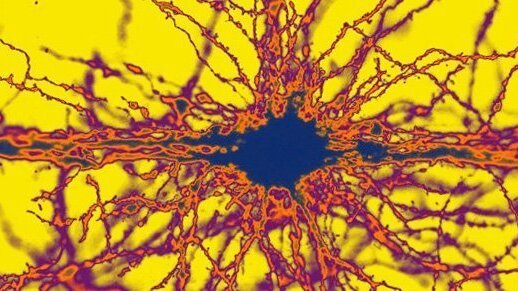Golgi stain (modified by Photoshop)
Image: Olivia EngmannPrincipal Investigator: Olivia Engmann
Genes and environment interact to shape the risk for mental illness.
- Aging is a part of life. Many illnesses are aggravated by aging, however aging also comes with often overlooked benefits such as increased knowledge and reduced depression risk. In our lab we aim to learn from aged cohorts for the benefit of younger individuals.
- Chronic stress is a very common condition and a main risk factor for depression. Resilience to stress and coping with stress effects can be strongly influenced by environmental factors such as diet.
We explore how environmental factors including diet, age and circadian rhythms interact on the molecular level to shape the response to chronic stress. Combining next generation sequencing approaches, CRISPR-epigenome editing and viral mediated gene transfer and with 3D-dendritic spine analysis and behavioral animal models, we reveal novel pathways that link genes, behavior and the environment. Our findings may ultimately benefit better treatments for mental illnesses such as depression and dementia.
Doctoral researcher: Gregor Stein
Postdoctoral researcher: Iqra Hussain
